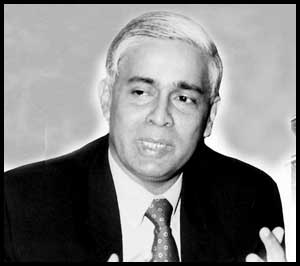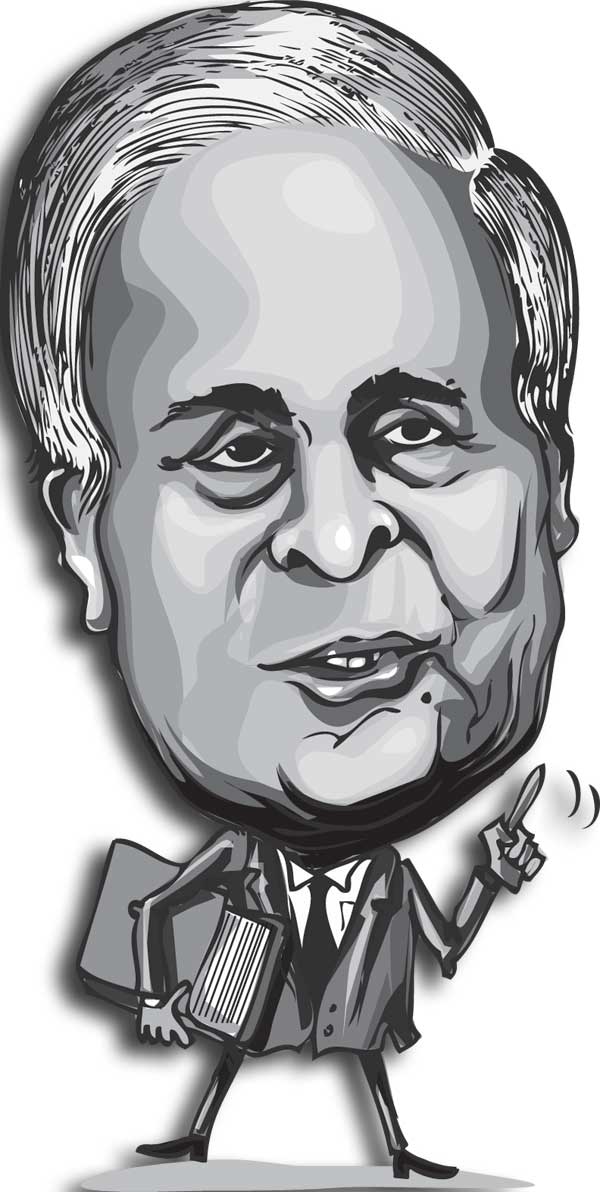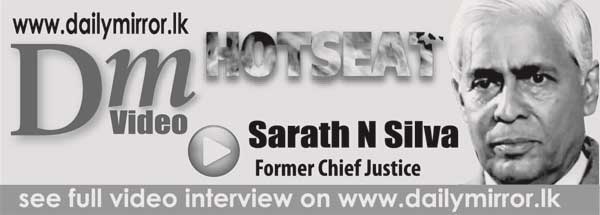Reply To:
Name - Reply Comment
Last Updated : 2024-04-26 06:07:00
 Former Chief Justice Sarath N. Silva speaks to the Daily Mirror on the apparent rift between the executive and the judiciary. To hear his comments on the attack on the Judicial Services Commission Secretary, watch the full interview on www.dailymirror.lk
Former Chief Justice Sarath N. Silva speaks to the Daily Mirror on the apparent rift between the executive and the judiciary. To hear his comments on the attack on the Judicial Services Commission Secretary, watch the full interview on www.dailymirror.lk If we take the legislature, the parliament—they fall in line with the executive. Whatever the executive dictates (I mean no insult to parliament) parliament will enact. Basically parliament tows the line, any bill that is presented by the executive, parliament passes including the 18th Amendment. When the 18th Amendment was presented in parliament, all the opposition did was walk out—that is a total loss of parliamentary control. The only other arm, is the judiciary and they were seen to be somewhat pliant. This conflict between the judiciary and the executive is natural in this type of set-up.
If we take the legislature, the parliament—they fall in line with the executive. Whatever the executive dictates (I mean no insult to parliament) parliament will enact. Basically parliament tows the line, any bill that is presented by the executive, parliament passes including the 18th Amendment. When the 18th Amendment was presented in parliament, all the opposition did was walk out—that is a total loss of parliamentary control. The only other arm, is the judiciary and they were seen to be somewhat pliant. This conflict between the judiciary and the executive is natural in this type of set-up. Q: The Secretary of the Judicial Services Commission claimed in a statement that the executive was attempting to influence the judiciary, by calling them for a meeting. But the government has denied this and said it was merely to discuss administrative issues and not to influence the judiciary. What is your view on this? Does the president have the right to request a meeting with the JSC and does the JSC have the right to refuse? Even though the JSC is appointed by the president?
Q: The Secretary of the Judicial Services Commission claimed in a statement that the executive was attempting to influence the judiciary, by calling them for a meeting. But the government has denied this and said it was merely to discuss administrative issues and not to influence the judiciary. What is your view on this? Does the president have the right to request a meeting with the JSC and does the JSC have the right to refuse? Even though the JSC is appointed by the president?
ANON69 Monday, 22 October 2012 06:12 PM
You are responsible for most of the problems.
Antany Tuesday, 23 October 2012 06:16 AM
Intellectuals are constantly leaving the country. Recently, over 470 academics have settled in overseas, according to the Ministry of Higher Education. Sooner or later Sri Lanka will be the most foolish country in Asia, in fact it is already a foolish country that is why it has been fighting since the independence. People and their leaders are too naive and foolish, they can't understand how much they can achieve together in unity. Tamils are fooled by the Indians continually, now they are fooled by the western countries too. Whether it is Sinhala or Tamil political party, if you are smart you have no place, if you say too much from outside you will be killed. I am a Tamil, but the Tamils leaders are intimidated by me, because I am smart. Sri Lanka will never become like Singapore, because its leaders are dangerous, foolish and too greedy.

Add comment
Comments will be edited (grammar, spelling and slang) and authorized at the discretion of Daily Mirror online. The website also has the right not to publish selected comments.
Reply To:
Name - Reply Comment
US authorities are currently reviewing the manifest of every cargo aboard MV
On March 26, a couple arriving from Thailand was arrested with 88 live animal
According to villagers from Naula-Moragolla out of 105 families 80 can afford
Is the situation in Sri Lanka so grim that locals harbour hope that they coul